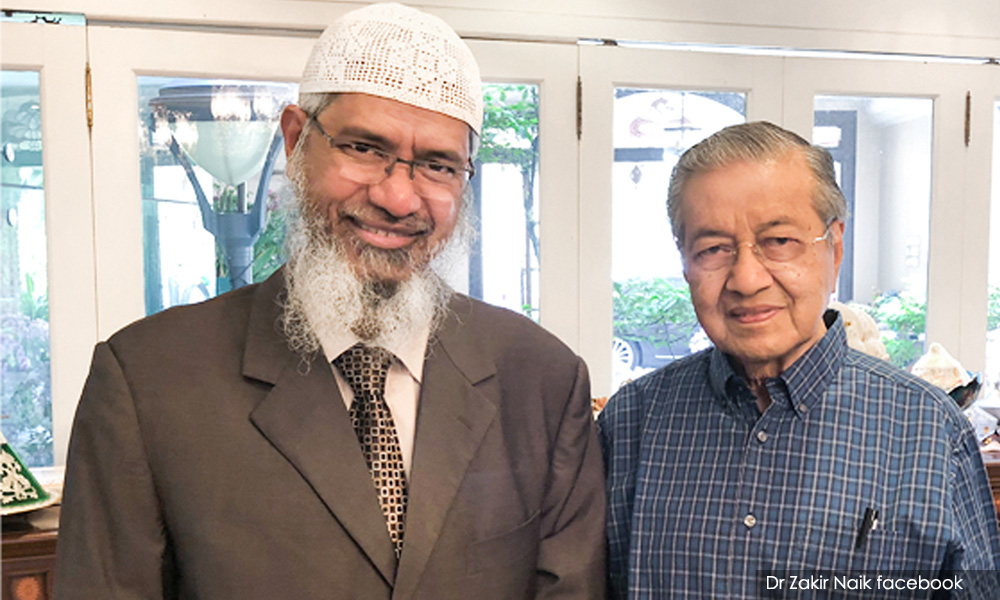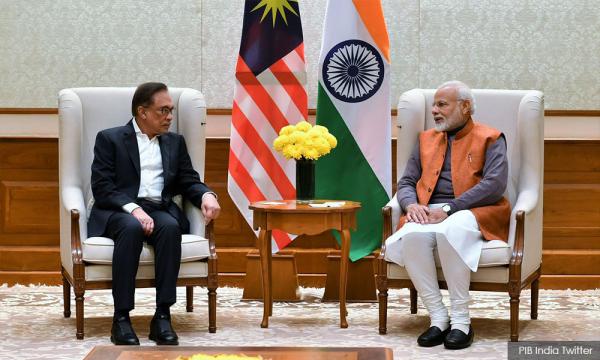The Malaysian government requires formal evidence before it can deport controversial Muslim preacher Zakir Naik, said Anwar Ibrahim.
The PKR president responded to this issue in an interview with the Indian newspaper The Hindu, which pointed out that Zakir is a thorn in the bilateral relationship between the two nations.
“This has not been raised with me personally. We do not subscribe to all allegations unless we are furnished with the details.
“We would need some evidence to the effect. Malaysia has been tough on terrorism, and if we are given incontrovertible evidence that someone has been involved, we would not tolerate it,” he said.
Responding to another question, Anwar admitted that there was a formal request from the Indian government for Zakir's deportation.
The daily noted that despite this, and to the disappointment of those in Delhi, Prime Minister Dr Mahathir Mohamad (photo) met with the preacher, who is a Malaysian permanent resident.
“The meeting took place prior to that request,” claimed Anwar.
“The authorities are yet to be given formal evidence. Yes, there is a request from India, but we don't act purely on a request unless there is also a strong compelling case. We do not condone any form of terror,” he added.

Delhi has accused the Indian-born preacher of hate speeches and links to terrorism, which Zakir has denied.
On July 6 last year, Mahathir said Zakir could remain in Malaysia provided he behaves himself.
In response, Zakir promised that he would not disrupt the harmony in Malaysia or break the country's rule of law.
Meanwhile, Anwar, who met Prime Minister Narendra Modi this afternoon, also spoke on other regional issues which the two nations could work on together.
“Well, I feel India, as a democracy in the region, should take a more positive leadership role.
“And I have said that I am disappointed that India has taken a position on Myanmar, for example, that business first and human rights in the background, both when Aung San Suu Kyi, and now with the Rohingya, we hoped India would be the voice of reason and champion the cause of justice,” he told the newspaper.


